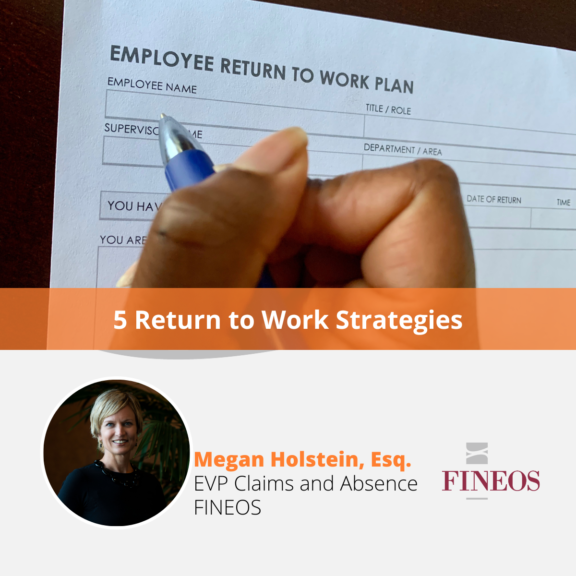Should You Return To A Company That Laid You Off? A Practical Guide

Table of Contents
Evaluating the Circumstances of Your Layoff
Before even considering the new job offer, it's crucial to honestly reflect on why you were laid off in the first place. Understanding the circumstances will significantly impact your decision on whether to return to a company that laid you off.
Was the layoff due to company performance or individual performance?
This distinction is paramount.
- Company-wide restructuring vs. performance issues: A company-wide restructuring, perhaps due to a merger, acquisition, or economic downturn, suggests external factors beyond your control. Returning might be more palatable in this scenario. However, a layoff due to individual performance issues requires significant self-reflection. Did you receive adequate feedback? Were there areas for improvement you could have addressed?
- Industry downturn vs. internal mismanagement: An industry-wide downturn indicates broader economic challenges. Returning might be reasonable if the company has demonstrated a plan to navigate these difficulties. Conversely, internal mismanagement leading to layoffs should raise serious concerns about the company's long-term stability and your future security.
- Impact on your self-esteem and confidence: Regardless of the reason, a layoff can impact your confidence. Honest self-reflection is crucial. Address any lingering doubts or anxieties before deciding if you're ready to re-enter this environment.
- Honest self-reflection on your performance: If performance issues contributed to the layoff, what steps have you taken to address them? Have you acquired new skills or improved your weaknesses? Be prepared to address these concerns during the interview process.
How was the layoff handled?
The manner in which the layoff was handled speaks volumes about the company's culture and values.
- Respectful treatment and severance package: Were you treated with dignity and respect during the layoff process? Did the company offer a fair severance package and outplacement services? These factors reflect the company's commitment to its employees.
- Open communication and transparency: Was the reason for the layoff clearly explained? Did the company provide open and honest communication throughout the process? Transparency indicates a healthier work environment.
- Opportunities for outplacement services or networking: Did the company provide resources to help you find new employment, such as outplacement services or networking opportunities? This shows a level of care and responsibility.
- Negative experiences and lack of support: Conversely, a negative experience, characterized by lack of communication, inadequate support, or disrespectful treatment, might suggest returning is not advisable.
Assessing the Current Job Offer
Now, let's evaluate the new job offer itself. Returning to a company that laid you off should not be solely based on nostalgia; it must be a strategically sound career move.
Is the role a lateral move, a promotion, or something different?
Understanding the nature of the new role is vital.
- Career progression opportunities: Does this role offer advancement opportunities you didn't have before? Will it lead to career growth and development?
- Salary and benefits comparison to previous role and market rate: Is the salary and benefits package competitive with the market rate and comparable to your previous role, considering your increased experience since the layoff?
- Job responsibilities and expectations: Are the responsibilities and expectations clearly defined and reasonable? Is the role a good fit for your skills and interests?
- Long-term growth potential within the company: Does the company offer long-term growth potential? Are there opportunities for advancement and professional development?
Has the company addressed the issues that led to the layoff?
This is perhaps the most crucial factor.
- Evidence of improved company performance or stability: Has the company taken steps to improve its performance or financial stability since the layoffs? Is there evidence of improved profitability, market share, or reduced debt?
- Changes in management or company culture: Have there been significant changes in management or company culture that address the issues that led to the layoffs? Look for demonstrable improvements.
- New strategies to prevent future layoffs: Has the company implemented new strategies to prevent future layoffs? This demonstrates proactive management and a commitment to employee security.
- Lack of confidence in the company's future: If you remain unconvinced about the company's long-term stability or its ability to avoid future financial difficulties, you should seriously reconsider.
Considering Your Personal Circumstances
Finally, consider your personal growth and career goals since the layoff. Returning to a company that laid you off should align with your overall career trajectory.
How has your career progressed since the layoff?
Reflect on your professional journey.
- New skills and experiences gained: Have you acquired new skills or experiences since the layoff that make you a more valuable asset?
- Networking and professional relationships developed: Have you built new professional relationships that could offer alternative opportunities?
- Salary expectations and career goals: Have your salary expectations and career goals changed since your layoff?
- Current job satisfaction and work-life balance: Are you currently employed? If so, are you satisfied with your current role and work-life balance?
What are your long-term career goals?
Align the offer with your aspirations.
- Does this opportunity align with your aspirations? Does returning to your previous employer support your long-term career goals?
- Are there better alternatives available? Weigh this offer against other potential job opportunities.
- Consider your risk tolerance and financial stability: Are you financially stable enough to accept a potentially risky opportunity?
Conclusion
Returning to a company that laid you off is a complex decision requiring careful consideration. Weigh the circumstances of your layoff, the details of the new job offer, and your own personal circumstances. Honest self-reflection, alongside a thorough evaluation of the company's current state and your career goals, will guide you toward making the best choice for your future. Don't rush the process; take your time to thoughtfully analyze the offer and determine if returning to your former employer is the right move for you. Remember to thoroughly evaluate all aspects before deciding whether to return to a company that laid you off.

Featured Posts
-
 Ceos Sound Alarm Trump Tariffs Economic Uncertainty And Consumer Impact
Apr 26, 2025
Ceos Sound Alarm Trump Tariffs Economic Uncertainty And Consumer Impact
Apr 26, 2025 -
 Worlds Tallest Abandoned Skyscraper Construction Resumes After Decade Long Halt
Apr 26, 2025
Worlds Tallest Abandoned Skyscraper Construction Resumes After Decade Long Halt
Apr 26, 2025 -
 The Role Of Human Creativity In The Age Of Ai A Conversation With Microsofts Design Leader
Apr 26, 2025
The Role Of Human Creativity In The Age Of Ai A Conversation With Microsofts Design Leader
Apr 26, 2025 -
 7 Must Try Orlando Restaurants In 2025 A Disney Alternative
Apr 26, 2025
7 Must Try Orlando Restaurants In 2025 A Disney Alternative
Apr 26, 2025 -
 Investors Shouldnt Worry Bof As View On Elevated Stock Market Valuations
Apr 26, 2025
Investors Shouldnt Worry Bof As View On Elevated Stock Market Valuations
Apr 26, 2025
Latest Posts
-
 Chillin In Alaska Ariana Biermanns Couples Trip
Apr 27, 2025
Chillin In Alaska Ariana Biermanns Couples Trip
Apr 27, 2025 -
 Ariana Biermanns Alaskan Vacation With Her Partner
Apr 27, 2025
Ariana Biermanns Alaskan Vacation With Her Partner
Apr 27, 2025 -
 Alaska Adventure Ariana Biermanns Romantic Trip
Apr 27, 2025
Alaska Adventure Ariana Biermanns Romantic Trip
Apr 27, 2025 -
 Ariana Biermanns Alaskan Adventure A Romantic Getaway
Apr 27, 2025
Ariana Biermanns Alaskan Adventure A Romantic Getaway
Apr 27, 2025 -
 Ariana Grande Lovenote Fragrance Set Online Shopping Guide And Price Check
Apr 27, 2025
Ariana Grande Lovenote Fragrance Set Online Shopping Guide And Price Check
Apr 27, 2025
